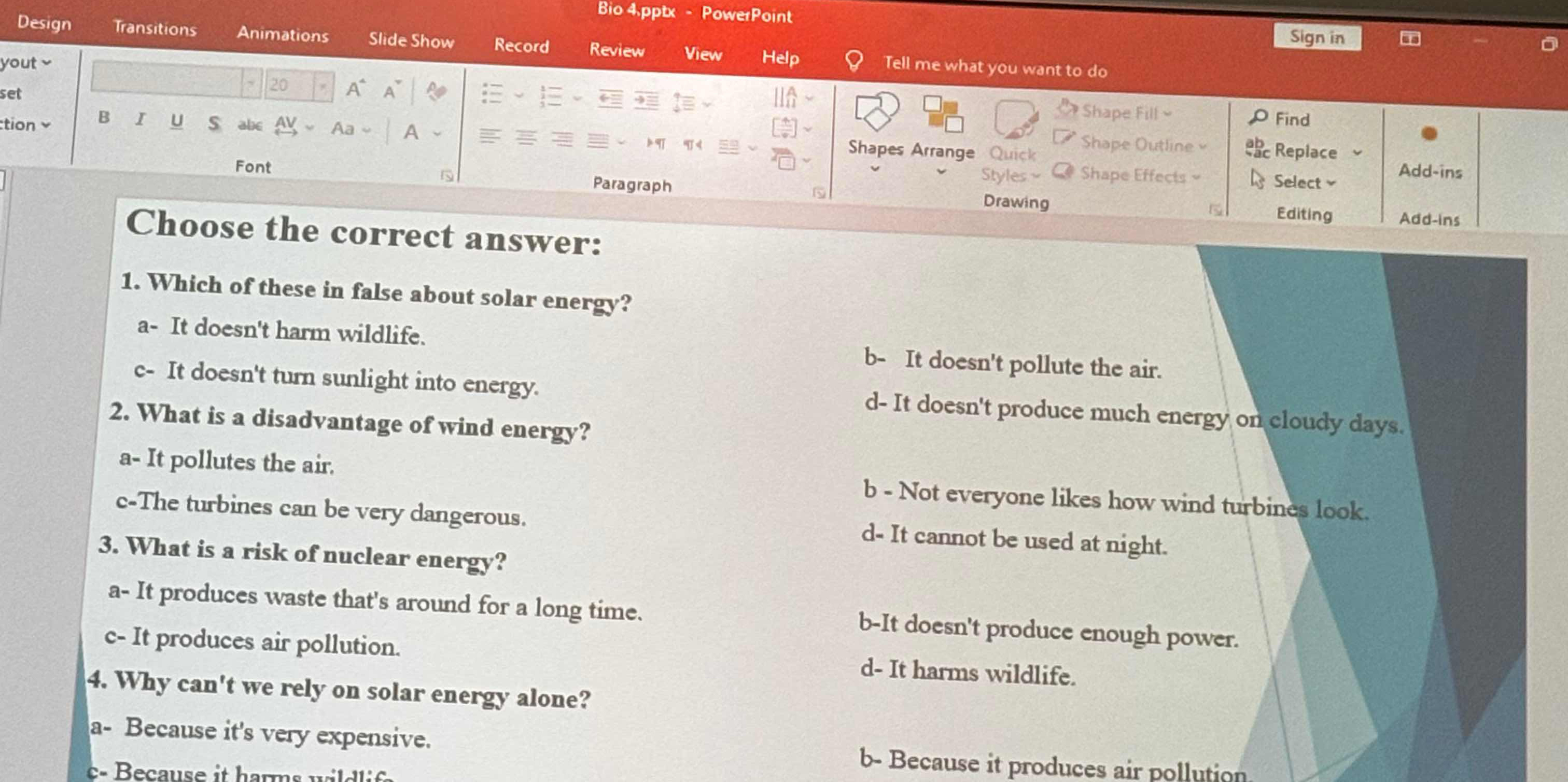Choose the correct answer: 1. Which of these is false about solar energy? a- It doesn't harm wildlife. b- It doesn't pollute the air. c- It doesn't turn sunlight into energy. d- It... Choose the correct answer: 1. Which of these is false about solar energy? a- It doesn't harm wildlife. b- It doesn't pollute the air. c- It doesn't turn sunlight into energy. d- It doesn't produce much energy on cloudy days. 2. What is a disadvantage of wind energy? a- It pollutes the air. b- Not everyone likes how wind turbines look. c- The turbines can be very dangerous. d- It cannot be used at night. 3. What is a risk of nuclear energy? a- It produces waste that's around for a long time. b- It harms wildlife. c- It produces air pollution. d- It doesn't produce enough power. 4. Why can't we rely on solar energy alone? a- Because it's very expensive. b- Because it harms wildlife. c- Because it produces air pollution.

Understand the Problem
The question involves a series of multiple choice questions related to solar, wind, and nuclear energy. It requires answers to assess knowledge about the advantages and disadvantages of these energy sources.
Answer
1. c 2. b 3. a 4. a
- c - It doesn't turn sunlight into energy is false because solar energy does convert sunlight into usable energy. 2. b - Not everyone likes how wind turbines look. 3. a - It produces waste that's around for a long time. 4. a - Because it's very expensive.
Answer for screen readers
- c - It doesn't turn sunlight into energy is false because solar energy does convert sunlight into usable energy. 2. b - Not everyone likes how wind turbines look. 3. a - It produces waste that's around for a long time. 4. a - Because it's very expensive.
More Information
Solar energy indeed transforms sunlight to energy, which makes choice 'c' false. Wind turbines are often controversial due to their appearance, thus 'b' for question 2 is valid. Nuclear energy does produce long-lasting waste. Solar energy involves high initial costs, justifying its expense.
Tips
Avoid assuming that solar energy is ineffective or doesn't work on cloudy days entirely; it produces less, but still some energy.
Sources
- Solar explained Solar energy and the environment - EIA - eia.gov
- The Advantages and Disadvantages of Solar Energy - Constellation - constellation.com
AI-generated content may contain errors. Please verify critical information